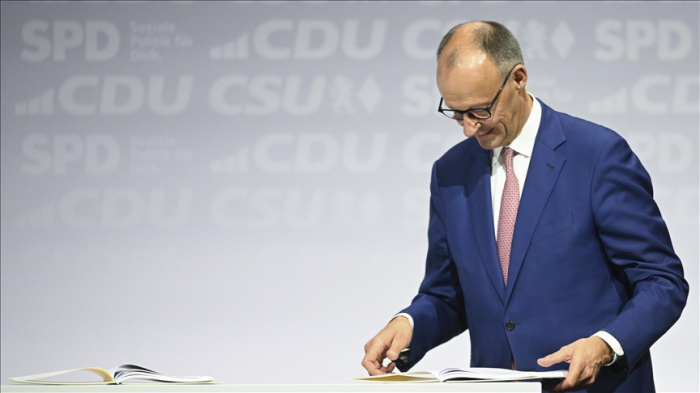In the secret ballot, 310 members of parliament voted for Merz, while 307 voted against him. He needed an absolute majority of at least 316 votes to be elected chancellor.
The surprise setback for Merz came despite his Christian Democrat alliance and its junior coalition partner (CDU/CSU), the Social Democratic Party (SPD), holding a comfortable majority of 328 seats in the Bundestag.
During the vote, three lawmakers abstained and one vote was invalid.
Nine parliamentarians were absent due to illness or other reasons. Due to the secret ballot, it remained unclear how many lawmakers from the coalition parties voted against Merz's chancellorship and what their party affiliations were.
Following the surprise results, party leaders met with their senior advisers to discuss the path forward. It was not immediately clear whether a second round of voting would take place later Tuesday or would be delayed until Friday.
This marks the first time in Germany’s postwar history that the chancellor candidate failed in the first round of voting.
According to the German constitution, if a chancellor candidate fails to win in the first round of voting, the parliament has two weeks to elect someone with an absolute majority, according to the Bundestag website.
Merz can run again at any point within the two-week period if he believes a second-round victory is possible. Multiple ballots can be held, and new candidates may also enter the race.
Jens Spahn, the CDU/CSU's parliamentary group leader, told reporters they would seek a second round of voting for chancellor candidate Merz, though the timing was still under discussion.
"A second round of voting will take place. Friedrich Merz will stand again for election, as proposed by the SPD and CDU/CSU party groups. As for any other questions, we ask for your patience at this time," he said during a break in parliamentary group consultations.
Merz’s Christian Democrats officially signed a coalition deal with the center-left SPD on Monday, following weeks of negotiations after the Feb. 23 elections.
The Christian Democrats won the snap elections with 28.5% of the vote but fell short of an outright majority. Though the Social Democrats recorded their lowest-ever result at 16.4%, they emerged as a crucial coalition partner for forming a stable majority government in the Bundestag.
AzVision.az
More about: Germany FriedrichMerz
















































